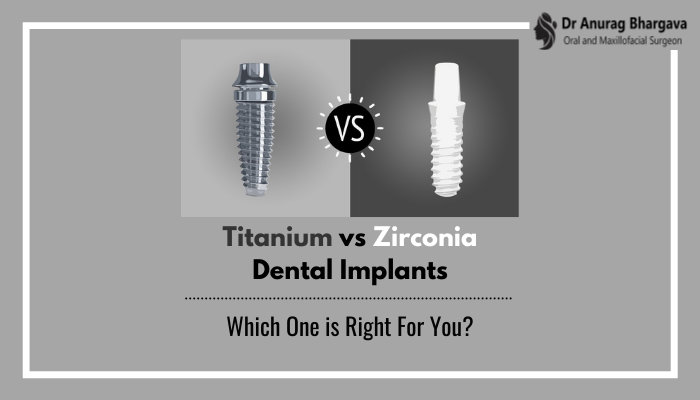Dental implants form an indispensable part of the restorative dental practices people get done to replace missing teeth or engineer a better smile. But for it to last you long enough, it must be made from materials that can take all the wear. Let's find out.
Can we Use Any Material in a Dental Implant?
The materials in a dental implant should be:
- Biocompatible
- Resistant to corrosion
- Resistant to fracturing
- Sturdy and robust
What are Dental Implants Made of?
Titanium has long been used for making dental implants. But as technology grew and more research was done keeping in mind the physical and chemical properties like microstructure and surface composition, we started using many more materials for this job. These are the two most common:
- Titanium Implants: Even though they started using titanium for dental implants in 1950, this is the most common type of dental implant material we use today. Because although titanium is brittle at cold temperatures, when we place a titanium implant next to a bone, it lets the bone grow correctly, creating a permanent affinity. This makes for a very durable and affordable implant.
- Zirconia Implants: As we started racking up more materials for implants, zirconia turned out to be great at the job. These are a non-metal alternative to titanium implants. Zirconia is a white ceramic material- it is Zirconium Dioxide (ZrO2). And even though we only started using it in implants in 1987, it looks like it might just be the most promising future of dental implant materials.
So Which One is Right for Me?
While both titanium and zirconia have gathered massive popularity over the years, it's important to know the nuances if you need to get yourself implants. And it's hard to ignore how widely accepted titanium and its alloys have been for this purpose with their success rates as high as 94%-97% in medical and dental procedures. More studies, researches, and decades of evidence have proved it reliable.
- With titanium, we can produce the implants in two pieces- a separate abutment sitting on top of the implant, connecting to the replacement tooth, and a post that is surgically implanted in the bone. Conversely, zirconia implants are made into a single piece.
- Being crafted into two pieces means that if you suffer from bone loss, you can get the implant customized.
- Titanium is biocompatible and can fuse with the human bone. Its ability to closely mimic the human body is just an added bonus. Because zirconia implants look a lot like real teeth in color, we don't see any darkness showing through the gums, unlike with titanium implants.
- Titanium implants may contain anywhere from 1% - 11% of other metals. If you are allergic to one of the metals in a titanium implant, zirconia is a great option for you.
- Zirconia accumulates less plaque, resists corrosion, and is a poor electrical and thermal conductor.
- Currently, titanium has more options and variety for components and designs.
- Zirconia is also more brittle than titanium and has less fracture and flexural strength- so it does fracture more easily than titanium implants.
- Zirconia implants are starting to find increasing demand in the biomimetic and holistic dentistry industries.
- Because the post and abutment are in a single piece in zirconia implants, there's less chance that bacteria will be lodged and ruin the gums. But since this is relatively new, zirconia implants will probably take some getting used to. Once we have thoroughly established its benefits through vigorous testing, we might begin to appreciate it more.
Final Verdict- So while titanium is already widely accepted and proven, zirconia is certainly emerging as a promising alternative to traditional titanium-based implants. It also has better soft-tissue response, biocompatibility, and aesthetics than do titanium implants. Keeping that in mind, it is important to make the decision that is right for you. So make sure you weigh all the benefits, limitations, risks, and options so you can make an informed decision about which dental implant material to go for.

